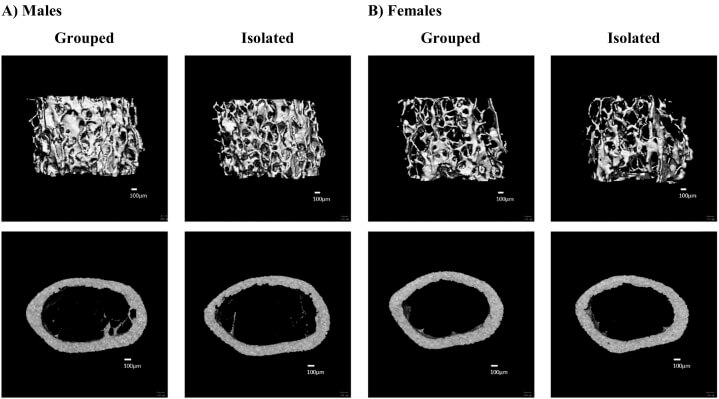CHICAGO — Loneliness and isolation may be just as bad for your physical health as it is for mental health — especially among men. A recent study finds that loneliness not only negatively affects men’s mental well-being but also their bone health.
“Social isolation is a potent form of psychosocial stress and is a growing public health concern, particularly among older adult,” says Dr. Rebecca Mountain, the lead researcher from the Maine Health Institute for Research. “Even prior to the onset of the COVID-19 pandemic, which has significantly increased the prevalence of isolation and loneliness, researchers have been concerned about a rising ‘epidemic of loneliness.'”
Researchers say that social isolation is linked to a heightened risk for numerous health conditions, including mental disorders, as well as elevated rates of illness and mortality.
“Previous clinical research has demonstrated that psychosocial stressors, and subsequent mental health disorders, are major risk factors for osteoporosis and fracture, which disproportionally affect older adults. The effects of social isolation on bone, however, have not been thoroughly investigated,” says Dr. Mountain in a media release.

(credit: Dr. Rebecca Mountain et. al)
In this new study, researchers subjected adult mice to either social isolation (one mouse per cage) or group housing (four mice per cage) for a duration of four weeks. The results showed that social isolation led to substantial declines in bone quality, including diminished bone mineral density, in male mice, but not in female mice.
“Overall, our data suggest that social isolation has a dramatic negative effect on bone in male mice, but it may operate through different mechanisms or in a different time frame in female mice. Further research is needed to determine how these findings apply to human populations.”
The findings were presented at the Endocrine Society’s annual meeting in Chicago and are published in the journal Bone.
You might also be interested in:
- Can your bone health impact your risk for dementia?
- Social isolation, loneliness raise risk of death from heart attack or stroke by nearly a third
- Finding purpose in life can protect against feelings of loneliness
South West News Service writer Stephen Beech contributed to this report.

